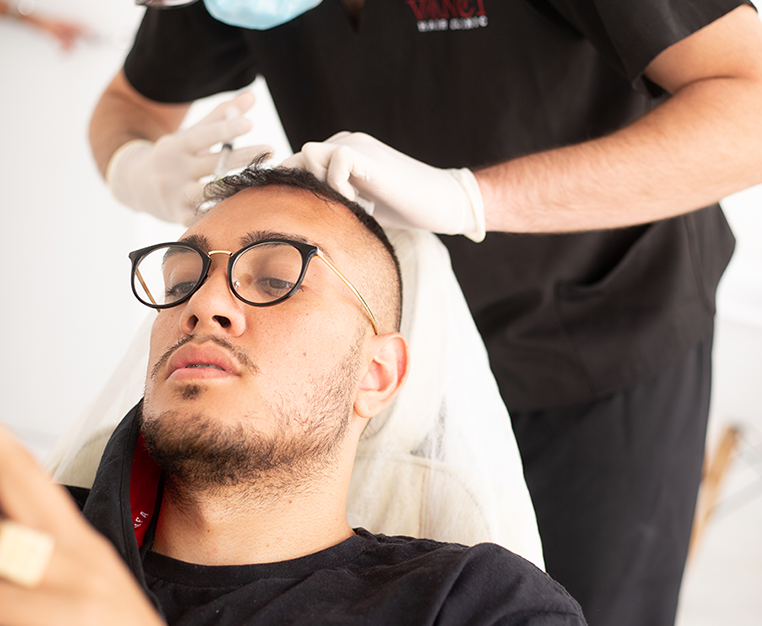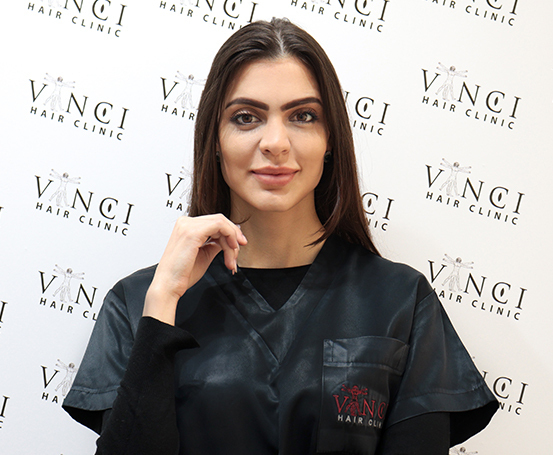Exfoliation is essential for beautiful skin. It could also be the key to having shiny, healthy hair. While it’s easy to disregard what you can’t see, the condition of your scalp can have a significant impact on your overall appearance. Exfoliation ignorance can result in lacklustre hair, clogged follicles and itchy, dry skin.
Most of you devote all of your TLC to your hair, but your scalp deserves your complete care as well. Exfoliating can help hair become naturally thicker, smoother and less oily. Here’s everything you need to understand about scalp exfoliation, from the advantages to its uses.
What Is Scalp Exfoliation, And How Does It Help?
Although the body replaces dead skin cells with new skin cells spontaneously, it can sometimes benefit from a bit of help in the form of exfoliation. The same is also true of the scalp. Physical or chemical exfoliants remove dead skin cells, oil and dandruff from the scalp. Besides, regular scalp exfoliation is the key to thicker, shinier hair from the roots to the tips.
What Are The Good Things About It?
Scalp exfoliation is a relaxing and stress-relieving method of revitalising the scalp. Exfoliation can thus benefit anyone who wants to undertake it. Scalp exfoliation may also be perfect for people who have dandruff, dry skin or oily hair. Although hair comprises dead skin cells, which is why getting a haircut does you no harm, the scalp is a live part of your skin. It, like the rest of your body, requires attention and maintenance.
What Is The Best Way To Exfoliate Your Scalp?
Scalp exfoliation can be a combination of scalp massage and skin therapy. Exfoliating eliminates oil from the scalp. Although it is okay to massage your scalp every day, specialists do not recommend exfoliating your scalp more than twice a week. Exfoliating too frequently may overstimulate the scalp and create excessive amounts of sebum.
You can exfoliate your scalp through wet, freshly shampooed hair. Use your fingertips to move the scrub after brushing through and separating portions of your hair. You can also exfoliate with an exfoliating brush or glove. If you’re using a physical exfoliant, rubbing in a circular motion will help. Keep in mind that scalp exfoliation can sometimes make the scalp seem more sensitive.
When Should You Exfoliate Your Scalp?
The frequency with which you exfoliate your scalp will vary, but once every seven to ten shampoos is a good estimate. It might be less than this if you have a particularly healthy scalp, unless you have used an excessive amount of product on your head. Choose scalp-friendly products with natural elements in their formula to get the most out of the procedure.
Are There Any Adverse Effects?
If you are suffering from a scalp condition such as ringworm, lice, or an open cut or sore, you shouldn’t exfoliate it. Certain chemical or physical exfoliants may be too abrasive for those with a sensitive scalp. You should stop exfoliating if you suffer any discomfort, oedema, or irritation. If the pain persists, consult your doctor.
The Benefits Of Scalp Exfoliation
The following are some of the possible advantages of exfoliating.
Removes Residue Or Buildup
Exfoliating your scalp can prevent buildup and dandruff. Exfoliating helps keep the scalp clear of residue, which causes hair follicles to become blocked and prevents the growth of healthy hair. Exfoliation helps eliminate the accumulation of products such as hair spray, gel and other styling products.
Promotes Hair Growth
Using a scalp exfoliator regularly can help hair develop in a healthy environment. You can reduce the enzyme population that contributes to the regular shed rate by eliminating dead skin cells from the scalp. Removing dead skin cells promotes cellular turnover on your scalp, enabling the growth of new, healthy cells.
Encourages Beautiful Glossy Hair
When you exfoliate your scalp, you’re cleaning the follicles where your hair grows. Your hair will become healthier and shinier as a result of this treatment. Furthermore, scalp exfoliators may help remove transient hard water deposits in haircare product accumulation.
Prevents Dandruff And Dry Scalp
Flakey scalps aren’t always indicative of dandruff; they could also indicate a dehydrated and irritated scalp. Exfoliating the scalp enables its natural oils to nourish and maintain the health of your scalp and hair. It keeps your hair free of dandruff and prevents a dry scalp.
Conclusion
Exfoliating the scalp is an excellent way to grow healthier hair from the roots up. Begin with a once-weekly scalp treatment and gradually increase to twice-weekly if desired. After exfoliating, avoid exposing your scalp to direct sunlight. If you must go outside, use a cap or sunscreen on your head and hair.
Scalp irritation may result in some forms of temporary hair loss. Vinci Hair Clinic experts can help if you are experiencing bouts of hair fall due to scalp problems. Start taking better care of your scalp today. Contact Vinci Hair Clinic and book your free consultation with one of our team!



